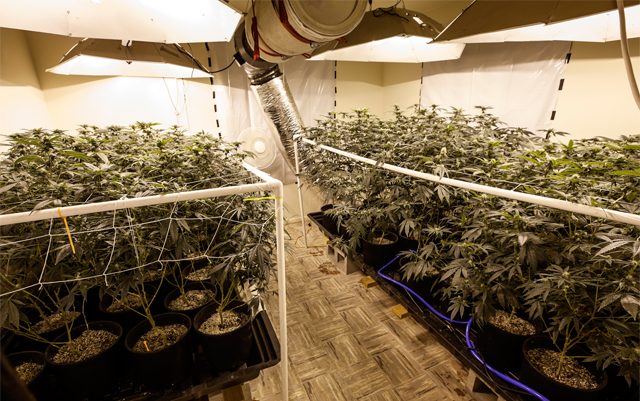Prohibitionists say the darndest things. Last fall, the chief of the DEA said, “calling marijuana medicine is a joke.” Earlier this summer, the commissioner of the NYPD blamed cannabis use for violence in New York City. In their most recent of absurd statements that are out of touch with the reality of legal cannabis, the DEA just compared Colorado grow houses to meth labs. Yes, you read that right.
The federal agency recently put out a four-page report that makes several outrageous claims about legal grow operations. The report begins by stating that “hundreds of homes in Colorado now contain large-scale marijuana grow operations due to the state’s marijuana laws”.
“Such operations often cause extensive damage to the houses where they are maintained and are increasingly the causes of house fires, blown electrical transformers, and environmental damage,” the report continues.
As if that wasn’t enough, the DEA further alleges “growers have little regard for fire risk or the home’s structural integrity, filling the property with loose and entangled wires and holes cut into subfloors.”
The report shamelessly continues, comparing the conditions of some grow operations to that of “meth houses of the 1990s that were eventually rendered uninhabitable.”
The report says that residents located near cannabis grow operations regularly call the police to report, “strong odors, excessive noise from industrial air-conditioning units, blown electrical transformers, and heavy vehicle traffic, posing clear hazards to the responsibility of police and firefighters.”
Even if we accept the false notion that the safety of legal grow houses cultivating medicinal plants are comparable to that of illegal meth labs, cannabis grow houses provide a product that tends to save lives, while meth labs produce a drug that tends to ruin lives.
Are there some fire hazards and other property issues involved with some legal grows? Of course there are. Just like with any other legal industry, there will be a spectrum of quality when it comes to products and services provided. However, most large-scale legal growers in the state of Colorado do not operate in residential homes. Licensing standards are in place to ensure that these locations are safe and up to code, and typically they succeed in doing that. So, this assessment of legal growers is wildly inaccurate, to say the least. A good amount of breeders support their families with grow operations, and get into the business with the desire to help provide a plant medicine to sick patients.






